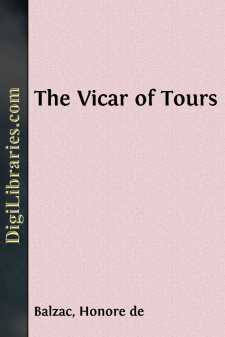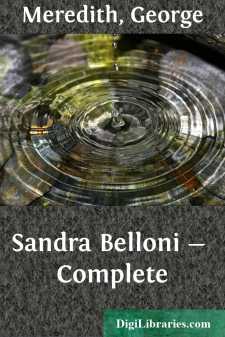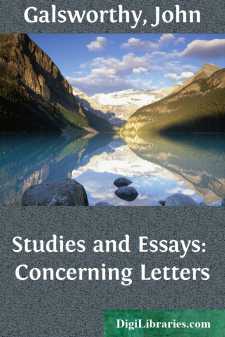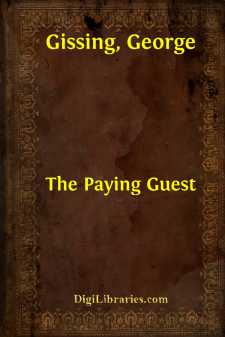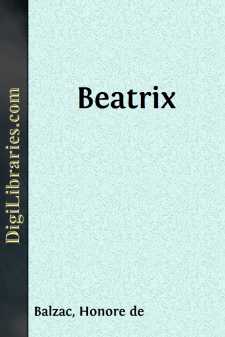Literary Collections
- American 84
- Ancient, Classical & Medieval 14
- Asian 1
- Australian & Oceanian 1
- Canadian 55
- Continental European 121
- English, Irish, Scottish, Welsh 179
- Essays 160
- General 24
- Letters 46
- Middle Eastern 1
Literary Collections Books
Sort by:
CHAPTER I Bram Johnson was an unusual man, even for the northland. He was, above all other things, a creature of environment—and necessity, and of that something else which made of him at times a man with a soul, and at others a brute with the heart of a devil. In this story of Bram, and the girl, and the other man, Bram himself should not be blamed too much. He was pathetic, and yet he was terrible....
more...
Chapter One. In Benchers’ Inn. “My darling! Mine at last!” Ting-tang; ting-tang; ting-tang. Malcolm Stratton, F.Z.S., naturalist, a handsome, dark-complexioned man of eight-and-twenty, started and flushed like a girl as he hurriedly thrust the photograph he had been apostrophising into his breast pocket, and ran to the deep, dingy window of his chambers to look at the clock over the old hall of...
more...
by:
Honore de Balzac
I Early in the autumn of 1826 the Abbe Birotteau, the principal personage of this history, was overtaken by a shower of rain as he returned home from a friend's house, where he had been passing the evening. He therefore crossed, as quickly as his corpulence would allow, the deserted little square called "The Cloister," which lies directly behind the chancel of the cathedral of Saint-Gatien...
more...
by:
George Meredith
CHAPTER I We are to make acquaintance with some serious damsels, as this English generation knows them, and at a season verging upon May. The ladies of Brookfield, Arabella, Cornelia, and Adela Pole, daughters of a flourishing City-of-London merchant, had been told of a singular thing: that in the neighbouring fir-wood a voice was to be heard by night, so wonderfully sweet and richly toned, that it...
more...
Dear Mrs. Kemble, I asked Donne to tell you, if he found opportunity, that some two months ago I wrote you a letter, but found it so empty and dull that I would not send it to extort the Reply which you feel bound to give. I should have written to tell you so myself; but I heard from Donne of the Wedding soon about to be, and I would not intrude then. Now that is over —I hope to the satisfaction...
more...
by:
John Galsworthy
A NOVELIST'S ALLEGORY Once upon a time the Prince of Felicitas had occasion to set forth on a journey. It was a late autumn evening with few pale stars and a moon no larger than the paring of a finger-nail. And as he rode through the purlieus of his city, the white mane of his amber-coloured steed was all that he could clearly see in the dusk of the high streets. His way led through a quarter but...
more...
by:
George Gissing
CHAPTER I It was Mumford who saw the advertisement and made the suggestion. His wife gave him a startled look. 'But—you don't mean that it's necessary? Have we been extrav—' 'No, no! Nothing of the kind. It just occurred to me that some such arrangement might be pleasant for you. You must feel lonely, now and then, during the day, and as we have plenty of room—'...
more...
by:
Honore de Balzac
I. A BRETON TOWN AND MANSION France, especially in Brittany, still possesses certain towns completely outside of the movement which gives to the nineteenth century its peculiar characteristics. For lack of quick and regular communication with Paris, scarcely connected by wretched roads with the sub-prefecture, or the chief city of their own province, these towns regard the new civilization as a...
more...
PART 1 — CAMBRIDGEI"The cow is there," said Ansell, lighting a match and holding it out over the carpet. No one spoke. He waited till the end of the match fell off. Then he said again, "She is there, the cow. There, now." "You have not proved it," said a voice. "I have proved it to myself." "I have proved to myself that she isn't," said the voice. "The...
more...
THAT WE SHOULD NOT JUDGE OF OUR HAPPINESSE UNTILL AFTER OUR DEATH scilicet ultima semper Expectanda dies homini est, dicique beatus Ante obitum nemo, supremaque funera debat. [Footnote: Ovid. Met. 1, iii. 135.] We must expect of man the latest day, Nor ere he die, he's happie, can we say. The very children are acquainted with the storie of...
more...




